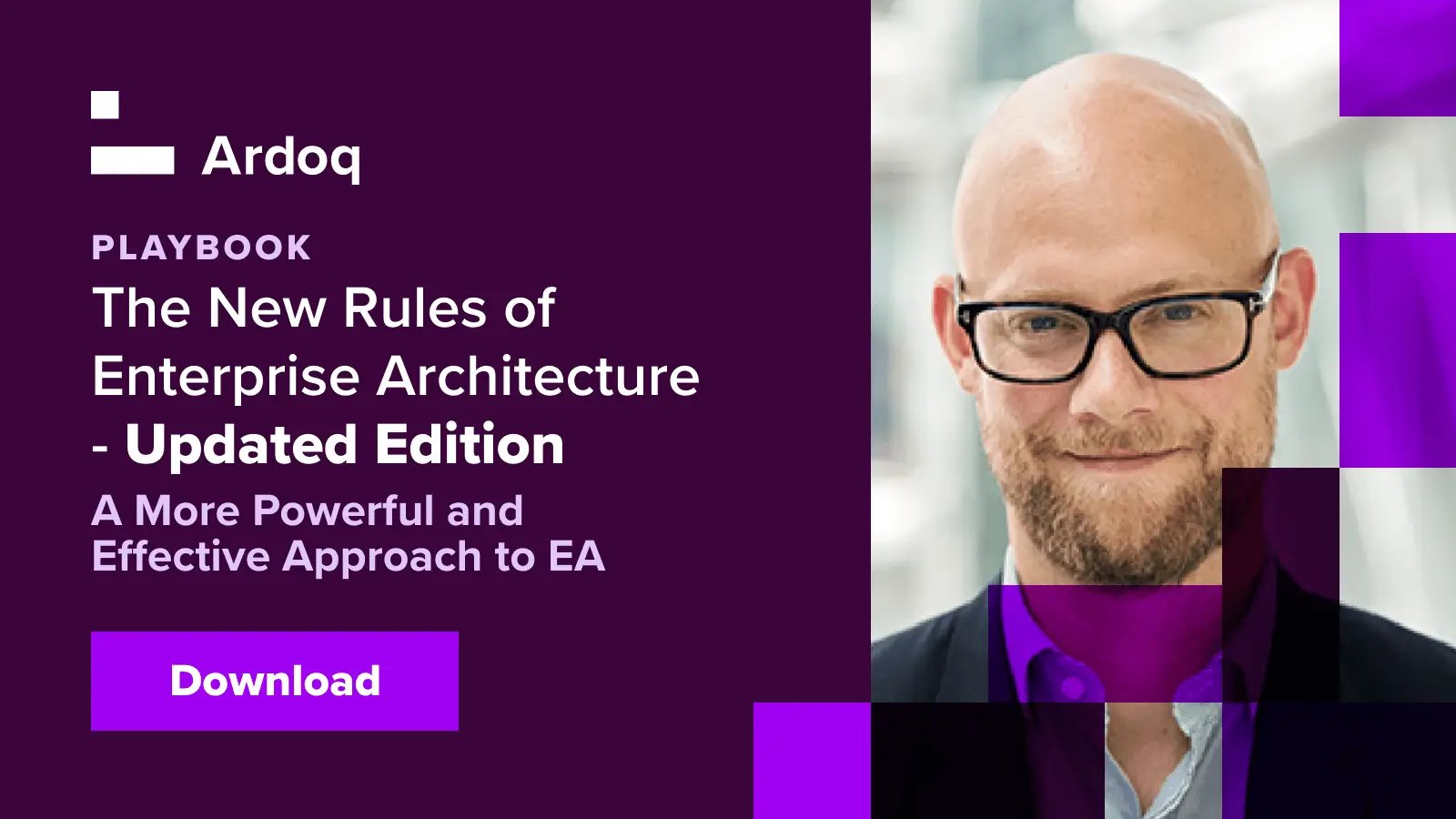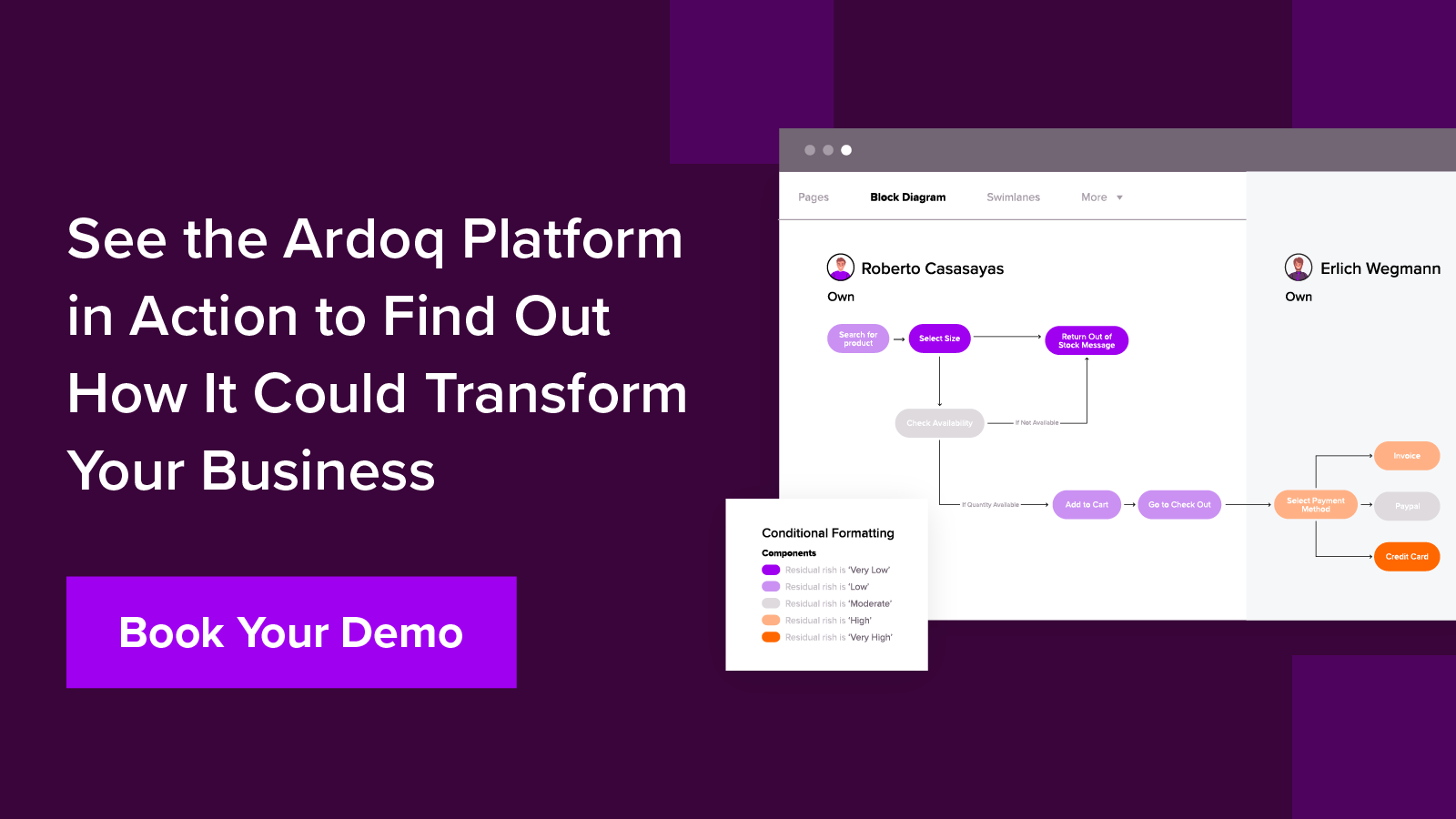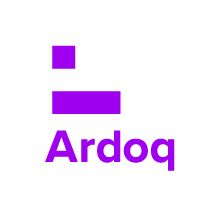In today’s fast-moving economy, consumer and business expectations are constantly shifting. Organizations must be sharper than ever when delivering customer outcomes and adapting to change.
Digitally-driven businesses thrive when they can fully leverage their data to inform operational and strategic decisions. Better informed decision-making, supported by a robust enterprise architecture metamodel, is critical to maintaining competitiveness and effectiveness. As a result, data-driven Enterprise Architecture (EA) that democratizes valuable EA insights is absolutely essential for the modern digital organization.
Ardoq’s Forrester Consulting Report: How Democratized Access to Data-Driven and Model-Agnostic New Enterprise Architecture Drives Success
To delve into this topic a little deeper, Ardoq commissioned leading market research company, Forrester Consulting, to evaluate how organizations are performing when it comes to using operational and business data to support their business priorities. Forrester surveyed 150 Enterprise Architects (EAs) and professionals (non-EAs) from the US and the UK to better understand the current situation. Forrester compiled their results and released a report titled, "Simplify your Enterprise Architecture with Context and Automation: How Democratized Access To Data-Driven And Model-Agnostic New Enterprise Architecture Drives Success."
According to the businesses surveyed, Forrester found a consensus that business and operational data should be accessible and understandable to anyone within a business - regardless of their role.
“Nearly 9 in 10 EA and non-EA decision-makers believe democratized access to operational data is important to support their objectives.”
Interestingly, some professionals (mostly those not from an EA background) complained that they struggled to access this data. Furthermore, there appeared to be barriers, both technical and strategic, that were preventing EA teams from being able to overcome this issue.
“98% of EA professionals cite obstacles in their efforts to democratize operational data access.”
Forrester’s report found that, in short, EA teams can have a more meaningful impact on their organization’s business objectives by ensuring:
- Their Enterprise Architecture strategies pivot around broader business goals.
- User requirements guide their efforts.
- Enterprise Architecture efforts are simple to understand and action by people across the business.
Here is a summary of the report’s key findings on the perceived value of EA insights and why they are still so difficult to activate for informed decision-making.
Aligned on the Value of Democratized Data but Not on Their Ability to Activate It
Most EAs and non-EAs surveyed by Forrester agreed that democratized access to operational and business data is critical for business success.
However, there was disagreement between Enterprise Architects and business professionals as to how well they perceive their organization is doing when it comes to activating business and operational data to support key objectives. EAs were far more likely to rate their organization as being “excellent” or “very good” when it came to how well they thought their organization was at activating this data.
This perception gap sheds light on the reality of the situation: Enterprise Architects need to do more to improve how they offer up their organization’s operational data to non-EA colleagues. It can be a struggle for non-EA decision-makers to make sense of, let alone use, this type of data.
Poor User Access to Data Harms Digital Business, but EA Limited by Technical and Strategic Barriers to Fix Issues
Of the non-EA decision-makers surveyed, 58% reported having difficulty connecting data reports to the bigger operational picture, with 44% reporting that they often can’t see how the operational data insights presented to them in dashboards relate to their actual operational environment.
As many as 95% of non-EA professionals faced challenges with using operational data to make decisions.
Even when EAs realize that poor access to operational data has consequences, they struggle to mitigate them due to factors like strategic and technological limitations that are at odds with their mission.
Frequent downfalls include:
- Ineffective decisions
- Reduced productivity
- Reduced operational agility
- Missed cost efficiencies
- Increased security/compliance risk
Some of the most common problems that Enterprise Architects encounter are integration challenges and difficulty leveraging advanced analytics. They also face barriers in terms of data governance, keeping information up to date, and conveying results to users with non-EA backgrounds. Many of these challenges are likely rooted in inflexible or outdated EA tooling.

So What’s Needed to Build Better EA Strategies Around Broader Business Goals?
EAs are already evolving their approaches to better align with their business goals and colleagues, but more work is needed. Many organizations have yet to democratize and make EA insights available to non-EAs effectively. To help drive more business value from Enterprise Architecture insights, the EA leaders surveyed highlighted five necessary capabilities:
- Flexible architectures
- Decision support to a variety of roles
- Data automation
- Models with embedded ROI metrics
- Outputs optimized for business users
Key Recommendations: Reshaping and Simplifying Enterprise Architecture to Help Meet Business Objectives
1) Provide Operational Data With Business Context
Operational data without business context has no value. Enterprise Architecture Management Suite (EAMS) vendors must provide accurate, real-time operational data that reflects the business environment experienced by business users. For example, providing operational staff with accurate processing and queuing data at airport terminals or retail outlets with real-time dynamic visualizations or videos of the queues can give a beneficial, relevant business context.
2) Provide Open and Flexible Reporting Capabilities to End Users
EAMS vendors must become truly open. Their data should be made easily available in whichever way their clients want it. In addition, if providing their own reporting engine, the end-users of the EAMS must be able to easily create, modify, publish, and maintain their own reports. Reporting too must also include business and operational context. One way this could be done is through using graph solutions.
3) Embed Artificial Intelligence Tools to Ensure Data Quality (and Remain Competitive)
There are a wealth of operational data sources out there, including people, systems, and devices, that impact the quality and accuracy of operational data. EAMS vendors that use AI discovery — for example, IoT (Internet of Things) devices such as smart lighting or smart security solutions — and data capture tools — e.g., crowdsourcing surveys and chatbots — to ensure real-time data quality gives a competitive advantage over EAMS vendors that continue with old-school point-in-time reporting or data exporting.
Get a sneak peek of the future of EA leveraging cutting-edge AI features to accelerate digital transformation efforts: Ardoq Labs.
4) Enable Dynamic Metamodel and Integration Enhancements
Adaptive organizations continuously improve their data insights capability. They enhance and modify the data entities and attributes that give them the up-to-date insights they need. To maintain a competitive edge, EAMS vendors must offer data integration configuration and codeless metamodel management that is accessible to non-technical users without an EA background. As EA value appropriation moves from certified EAs to business executives and subject matter experts directly, the model’s flexibility and ability to truly reflect the organization’s unique state are key to delivering contextually correct insights to drive better-informed decisions.
How Ardoq Enables Informed Decision-Making and Democratizing Enterprise Architecture Insights
Enterprise Architects play an invaluable role in enhancing business outcomes and helping their organizations plan for change. However, if the operational data and information they are gathering are not accessible to everyone, then their efforts are somewhat wasted. Ardoq’s unique focus on making EA insights accessible to all can help you to bridge this gap between EAs and non-EAs, and better align your IT strategy with your overall strategic objectives.
Here's how Ardoq’s features address some of the key challenges in democratizing enterprise architecture data, making it valuable and accessible across the organization for different stakeholders:
Simplified UI Catering to Citizen Users: Ardoq Discover
Ardoq Discover was designed precisely to address the issue of EA tools and reports being impenetrable for non-EA users. Through an elegant, intuitive UI it empowers citizen users to self-serve real-time, contextual insights that help them make better-informed decisions in their day to day.
Dynamic Capabilities to Socialize Insights
- Dashboards give you a high-level, easy-to-understand view of your data so that you can ask the right business questions and share insights with the rest of your organization.
- Presentations pull live data from Ardoq, making them a simple way to share the latest data with stakeholders.
Keeping Things Effortlessly Up-to-Date
- Automated data collection minimizes the pain of data maintenance, freeing EAs to focus on more strategic work and collaboration on business strategy.
- Integrations ensure that Ardoq can easily connect to existing platforms, pulling in data from all your systems and keeping it up-to-date automatically.
- Surveys help quickly crowdsource data from anyone in the organization - without them needing to learn how to use Ardoq and any kind of EA tool.
Learn more about how Ardoq can enable informed decision-making and impactful decisions at every level of your organization.







/Logos/Ardoq/RGB_Ardoq_Logo_Stacked_White_Monochrome%201.png?width=80&height=77&name=RGB_Ardoq_Logo_Stacked_White_Monochrome%201.png)

